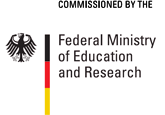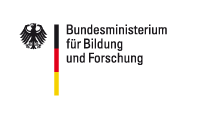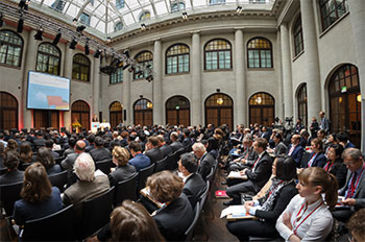The Conference was opened by the Chinese Minister of Science and Technology (MoST), Prof. Dr. Wan, and the Secretary of State at the Federal Ministry of Education and Research (BMBF), Dr. Schütte. In their opening speeches, both emphasised the importance of the links between the innovation centres Germany and China in view of the current economic and global challenges facing both countries. They also stressed the role of young people as driving forces for new ideas and international networking. Dr. Hu, leader of the Chinese expert panel, outlined the development of the German-Chinese Innovation Platform since it was founded by both Ministries in 2011 and referred to the links to be forged between innovation research and concrete innovative applications during the Conference.
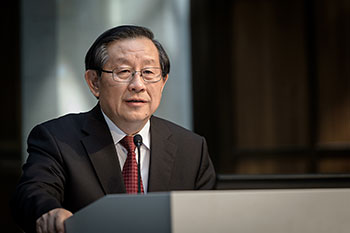
Minister Wan © André Wagenzik
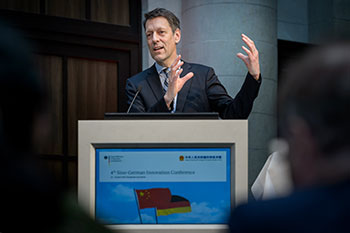
Secretary of State Schütte © André Wagenzik
The 4th Innovation Conference featured not only traditional innovation dialogue but also dealt with concrete technological areas of cooperation in the fields of urbanisation, water, digitalisation, LED and electromobility.
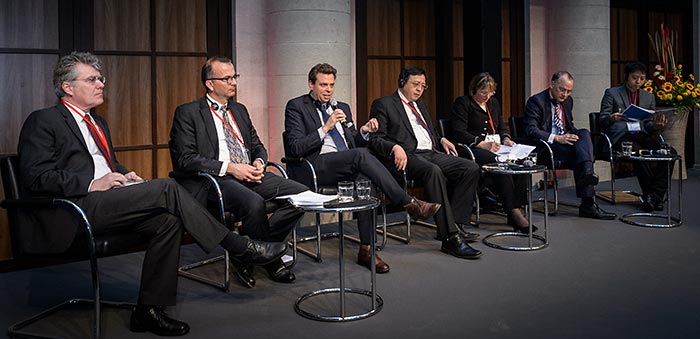
Roundtable während der Eröffnungszeremonie © André Wagenzik
The opening ceremony was followed by a round-table discussion led by Dr. Schüller (GIGA Institute of Asian Studies). Six panellists active in the fields of science and business discussed the progress already made in German-Chinese innovation partnerships and presented their ideas and expectations with regard to intensifying this cooperation. The panellists mentioned urbanisation and smart cities, sustainable mobility concepts, intelligent digitalisation, Industry 4.0 and alternative propulsion systems as areas of cooperation for tackling the challenges of the next 5-10 years.
After the round-table discussion, three parallel panels held four workshops each. The main topics dealt with by the panels were:
- Analysing innovation systems and selected frameworks
- Innovation in the field of sustainable urbanisation
- New developments and future challenges in German-Chinese research partnerships
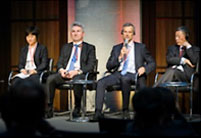
Discussing the speakers in session 1.2
© André Wagenzik
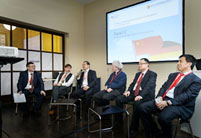
Discussing the speakers in session 2.1
© André Wagenzik
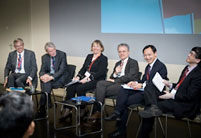
Discussing the speakers in session 3.1
© André Wagenzik
Intensive discussion by the panels
Panel 1 held sessions on national innovation systems, regional innovation systems and cluster policies, standard essential patents and financing innovation. Panel 2’s sessions focused on climate-friendly, energy-efficient cities, water in urban areas, integrated urban planning and urban innovations with practical examples. Panel 3’s sessions related to the challenges of digitalising business in China and Germany, smart services and intelligent production, LED and electromobility.
In the morning of the second day of the conference, during a session on biomedicine and biotechnology, four expert presentations were followed by a discussion on how Germany and China can both benefit from sharing knowledge and jointly developing new ideas in these areas.
Similar challenges in Germany and China
After the parallel sessions, there was a joint plenary discussion in which two experts per country from each panel presented the most important points of discussion and the challenges and opportunities identified by the panels. Here it became clear that the issues and challenges in both countries are similar in many respects despite their differences, for example with regard to the state's role in the innovation system. With reference to the workshops, it was also found that a purely technological approach to innovative topics is inadequate and that a wider perspective must be developed. This includes the political construction of frameworks, basic and advanced training, disseminating knowledge to the public and international, interdisciplinary cooperation. New paths must be forged in many areas, and more attention must be paid to human behaviour and needs along with the technical aspects. This necessitates transdisciplinary approaches.
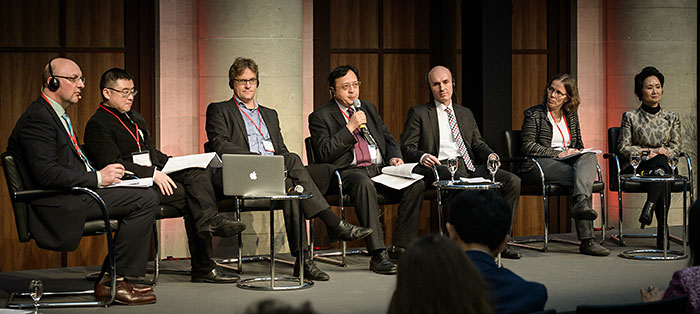
Participants in the closing plenary discussion © André Wagenzik
Weiterhin großer Bedarf für intensiven Fachaustausch
During the closing ceremony, the two leaders of the German-Chinese expert panel, their deputies (Prof. Dr. Gerybadze and Prof. Dr. Liu representing Dr. Hu) and the representatives of the responsible Ministries emphasized that the 4th Innovation Conference had shown the importance of interdisciplinary exchange and that there is still a need for intensive expert dialogue on the subject of partnership in innovation. Speaking on behalf of both Ministries, Heads of Directorate Mr Chen and Mr. Beyer established that both parties were highly sympathetic to the German-Chinese Innovation Platform and were also deeply interested in continuing the dialogue. The 5th German-Chinese Innovation Conference is scheduled to take place in China in 2018.
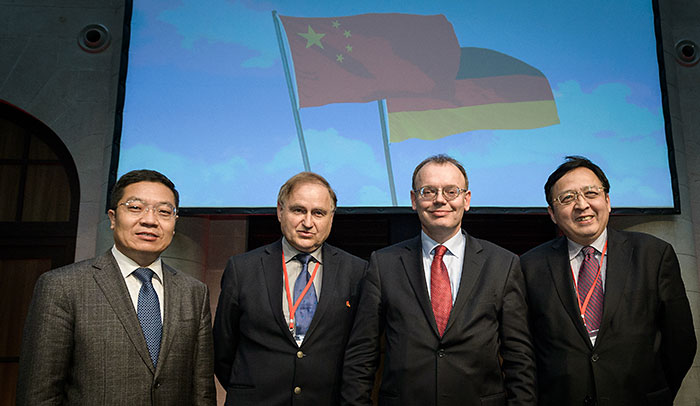
Head of Directorate Chen (MoST), Prof. Dr. Gerybadze (University of Hohenheim), Head of Directorate Beyer (BMBF) and Prof. Dr. Mu (Chinese Academy of Sciences) © André Wagenzik
